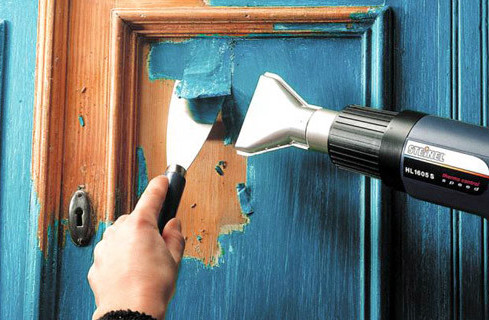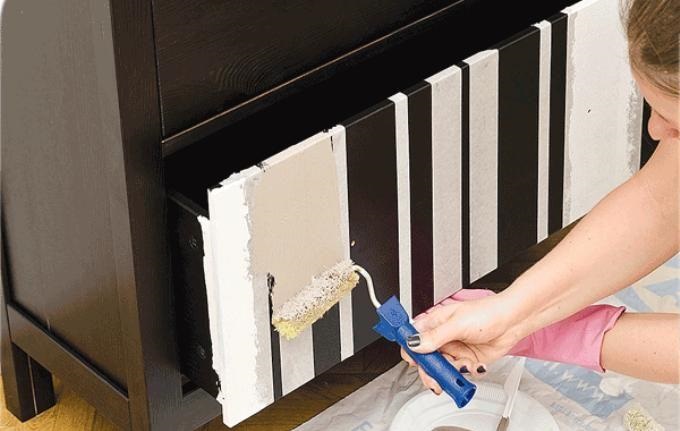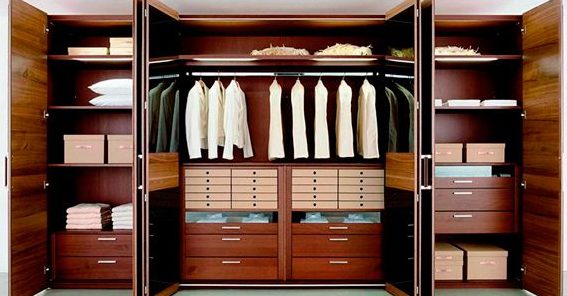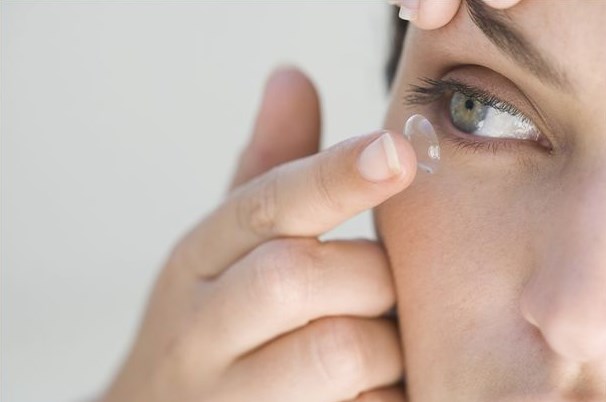The second life of an old wardrobe
 Don't rush to throw away old furniture. If desired, it can be restored, extending its life in a new look. A boring old wardrobe can easily be transformed into an original, creative piece of furniture. For this purpose, modern paints, varnishes, self-adhesive wallpapers, handles, and linings are used, which change the appearance of the furniture. Materials are selected depending on the selected design project. Restoration does not require significant financial and physical costs.
Don't rush to throw away old furniture. If desired, it can be restored, extending its life in a new look. A boring old wardrobe can easily be transformed into an original, creative piece of furniture. For this purpose, modern paints, varnishes, self-adhesive wallpapers, handles, and linings are used, which change the appearance of the furniture. Materials are selected depending on the selected design project. Restoration does not require significant financial and physical costs.
The content of the article
Do-it-yourself restoration of an old wardrobe
The old wardrobe does not have to be taken anywhere; all work can be done at its location. The advantage is the ability to correct or adjust the project during the work at your own discretion. The restoration process gives particular satisfaction to creative people who receive great satisfaction from work done with their own hands.
Attention! The big advantage of restoration with your own hands is the opportunity to update furniture with minimal losses for the family budget.
To restore an old wardrobe, you can use one of 4 main styles:
- Art Deco - characterized by the presence of geometric patterns in bright colors.
- Decoupage is a style using pasted figures, patterns (napkins with colored patterns) and then fixing them with varnish. Found wide application for wooden surfaces.
- Self-adhesive films and wallpaper - covering wooden surfaces with patterns cut out from wallpaper or film using a stencil.
- Craquelure - creates an imitation of antiquity on wooden surfaces using craquelure, adding beauty to existing cracks in furniture.

Materials and tools
The tools necessary for work are available in every home. If you don't have any of them, you can purchase them at a tool store.
To work you will need:
- Sander;
- paint brushes and rollers;
- Screwdriver Set;
- spatulas.
Important! For uniform painting, it is recommended to use a spray bottle, or, if it is not available, use velor rollers.
Depending on the chosen restoration method, the following materials may be needed:
- sandpaper;
- furniture fittings;
- fasteners;
- furniture wax;
- solvent;
- primer;
- insecticide;
- putty;
- stain;
- acrylic varnish of the selected tone;
- masking tape;
- stencil;
- self-adhesive wallpaper or film;
- PVA glue;
- acrylic paint.

Materials can be purchased at any construction supermarket. The list may be supplemented with materials that are rarely used due to high cost or specifics of the work. For example, expensive photo printing done in specialized companies, or decorative plaster that requires skill in working with it.
Step-by-step instruction
The restoration steps will vary depending on the style chosen. Step-by-step instructions for updating an old wooden two-door wardrobe using a pattern of self-adhesive film:
- Dismantle the wardrobe using screwdrivers.
- Replace worn-out fasteners and fittings.
- Clean all components from dirt.
- Degrease wooden surfaces.
- Remove old varnish or paint.
- Sand the surfaces.
- Leave for 6-8 hours to dry completely.
- Treat wooden surfaces with insecticide.
- Seal cracks with putty or furniture wax depending on their size.
- Apply 2 layers of primer to the surface to be painted, drying in between.
- Check the surface for smoothness.
- Paint with the selected acrylic paint in 2 layers with intermediate drying.
- Leave for 24 hours to dry completely.
- Cut out a geometric pattern using self-adhesive wallpaper or film.
- Glue it symmetrically to both wardrobe doors.
- Apply clear acrylic matte varnish in 2 layers.
- Leave until completely dry for 24 hours.
- Attach new door handles.
After all the work is completed, the old wardrobe gets a second life with a new look.





